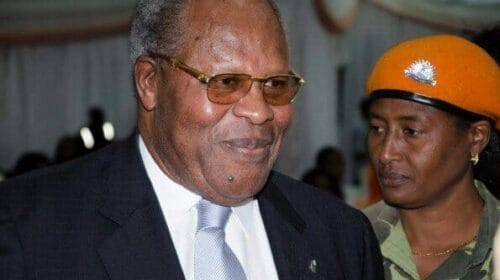Mbeki’s message: To every action there is a reaction
Though it was tailored as an African Union message, it can apply to just about all other social and economic spheres in which the continent has to navigate. Mbeki said in summary that for long Africa has collaborated with the West to weaken itself and this was seen especially in the case of the NATO invasion of Libya. While we Africans loathe imperialism, leaders on the continent must not make the path of imperialists easier by delegating the strategic tasks enshrined in good governance which include democracy, human rights and the interests of its people. He would like all Africans to strengthen the continents cohesion and its capacity to act in unity around a broad progressive agenda.
These are all very high and important ideals, but the reality is often different. African citizens’ collaboration with western imperialists cannot be broadly generalised. Most countries find that they have two different mindsets among their population. A passive rural population that goes about its business of living and an urban population that demands for a better life. Most of the collaboration is by the urban elite and they do so after they feel they have been pushed into a corner by the ruling governments. With Egypt it was the price of bread, with Bouazizi in Tunisia it was the right to sell fruit and Libya, it was the monotony and brutality of Gadaffi leadership.
African governments have persistently shown that democracy is not necessarily a tool to improved wellbeing. Actually democratic processes can sometimes undermine the fundamental human rights of people on the continent and cause them to take such drastic measures as collaboration. Leaders should be asking themselves, how best to minimise the desire of their urban elite to collaborate with Western imperialists. Maybe they can do this by asking if indeed the democracy that we have adopted; that evolved over hundreds of years in the Western world; whether that democracy is a good governance model for Africa.
The fundamental rights of all of us African citizens revolve around our right to food, shelter, clothing, learning, good health as well as freedom to pursue our dreams. Do the policy decisions taken by African governments enhance these rights or they undermine them? Most African countries have not reviewed the systems put in place by the colonialists including the mental enrichment programmes in schools. These were just designed to create a workforce for the Western world’s interest yet we maintain these programmes without due consideration to where we wish it to be 50 years from now.
It is going to be a painful and expensive lesson for Libyans. For example, Iraq, nine years down the road, is paying bitterly after the US withdrew its forces and left them more impoverished than under Saddam Hussein.
Yes, they got their political freedom, but lost their economic freedom. Maybe this was the lesson Mbeki was trying to teach us, to strengthen our ability to understand that in every action, there is a resultant reaction that may impact negatively on us. It seems though in Africa, it is leadership that has to change their way of thinking first by becoming pro-people and foresighted.
Ms Mbabazi is a social critic.



